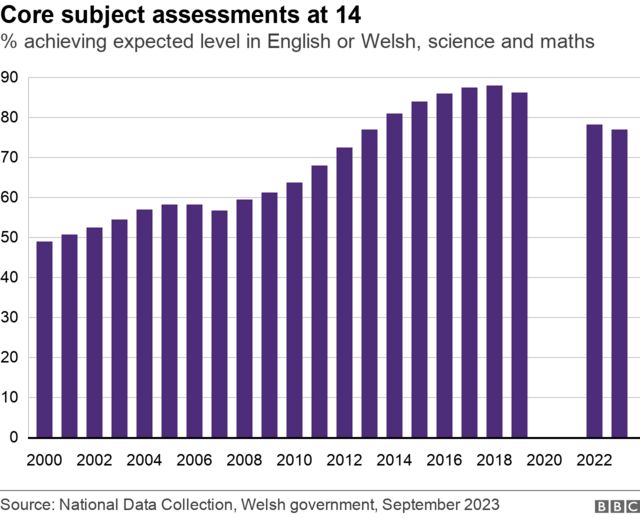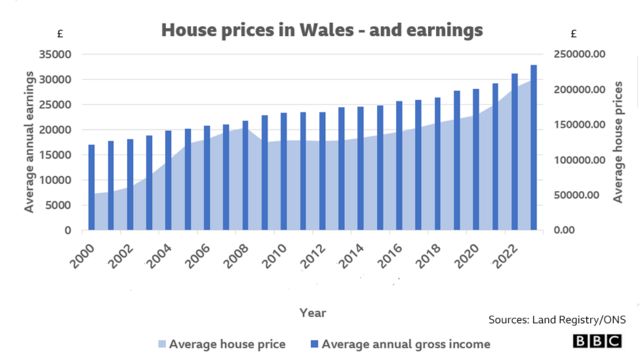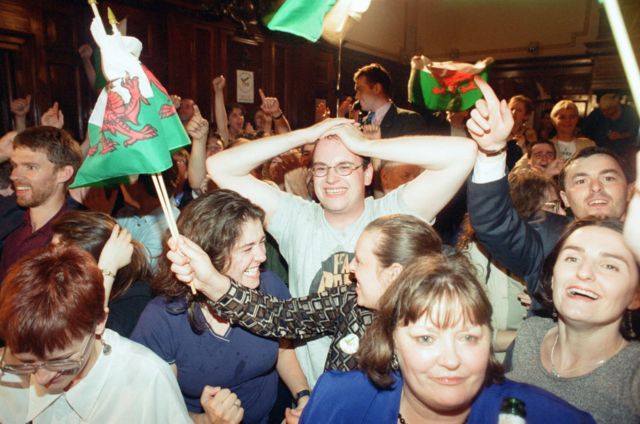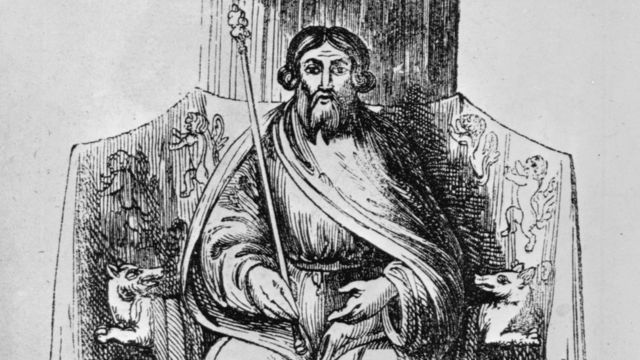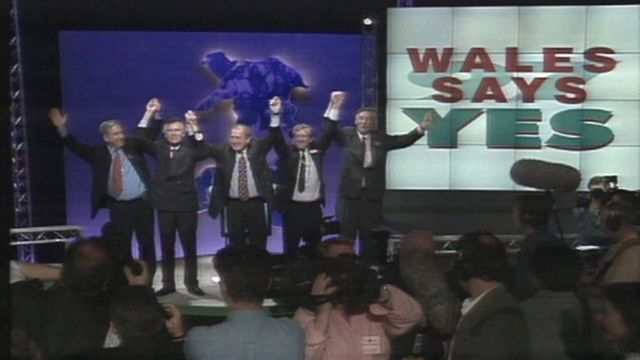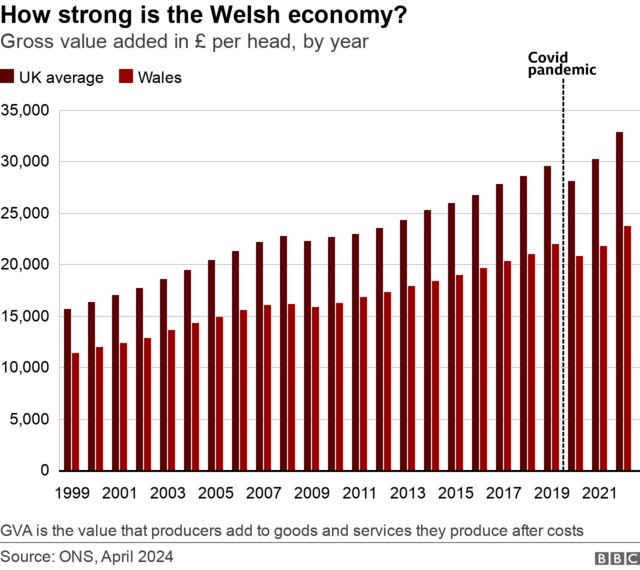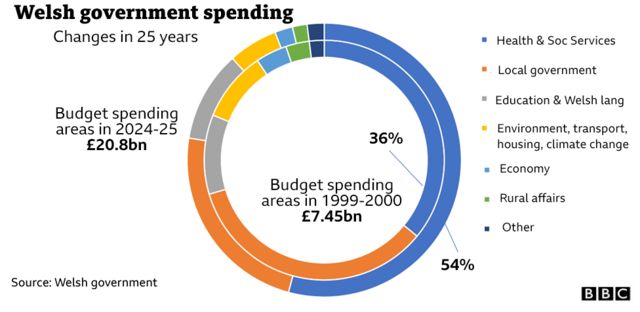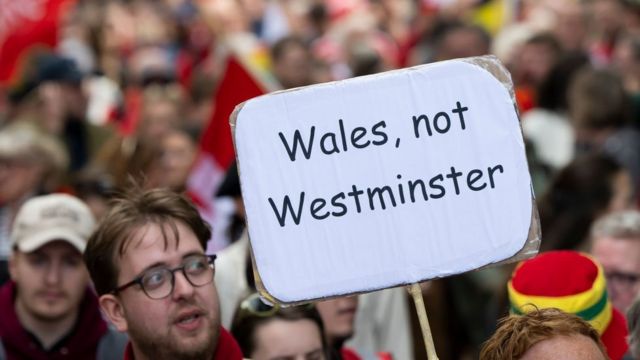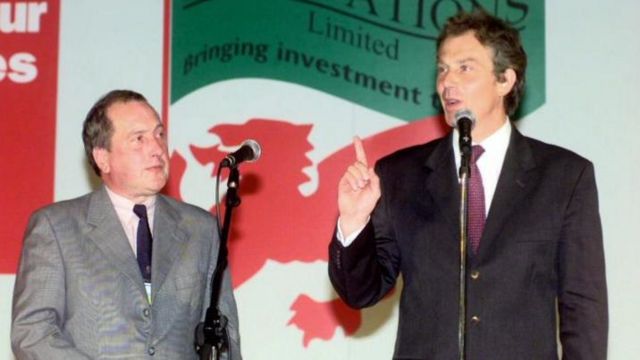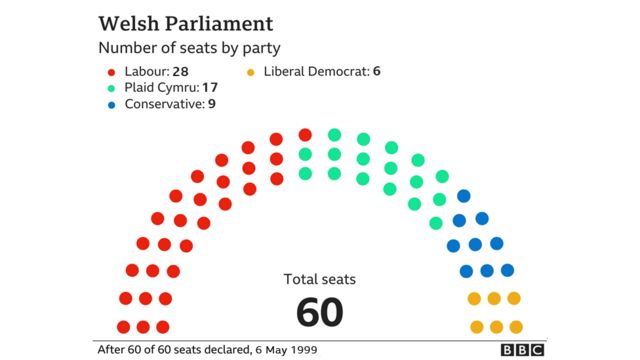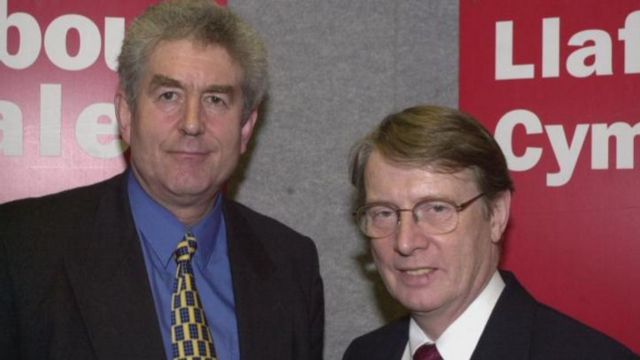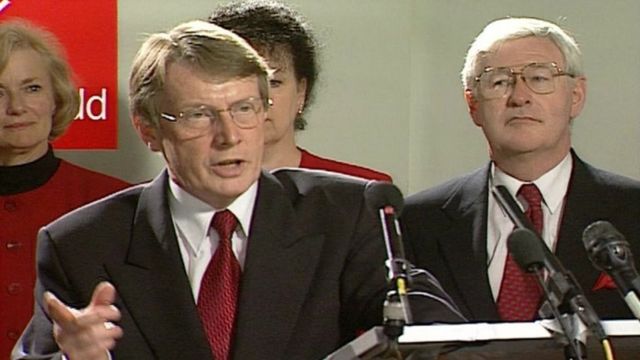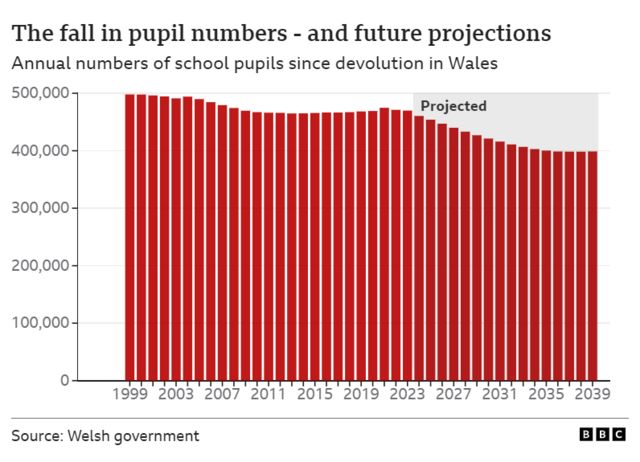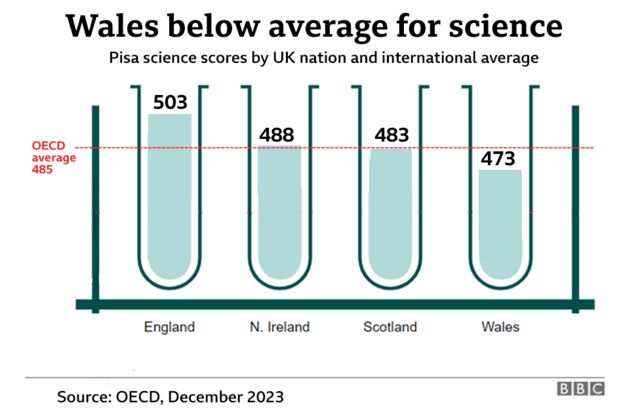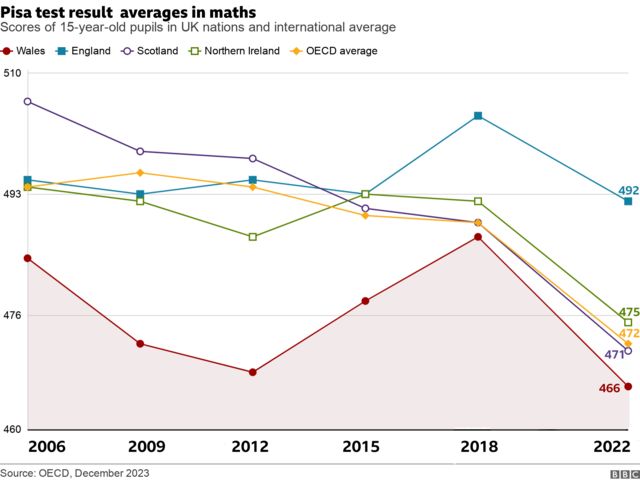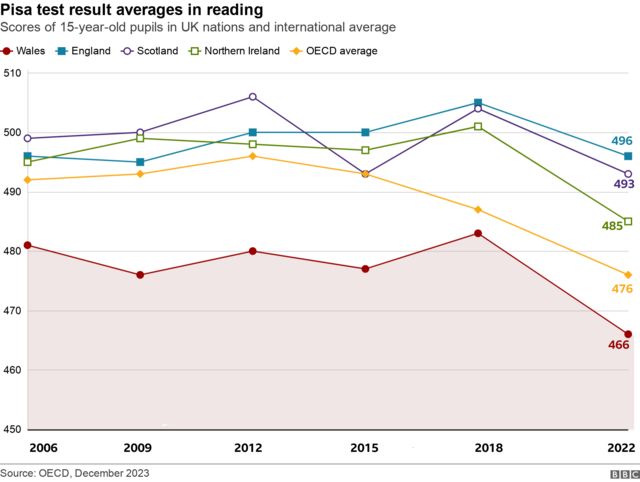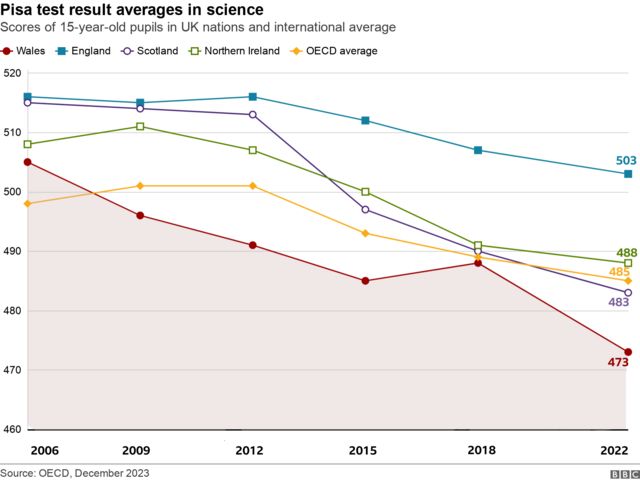That's the end of today's live coveragepublished at 18:57 7 May
Want the most headline-grabbing policies in the 25 years of Welsh devolution? That's good because it means BBC Wales' political editor Gareth Lewis didn't waste his time doing this video
Now, we're bringing to an end our live page coverage of Welsh devolution at 25.
If you'd like to read our story about how Wales' current first minister told ministers during the Covid pandemic that he was deleting messages from a texting group, please read it here.
Vaughan Gething is actually in the news twice today as has said he very much regrets the "anxieties" after being heavily criticised for accepting £200,000 from a company owned by a man prosecuted for illegally dumping waste during his leadership campaign. You can read that new story here.
Thanks for getting involved. Have a lovely evening.
